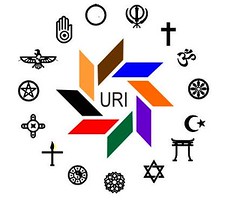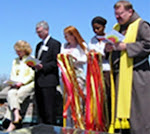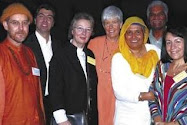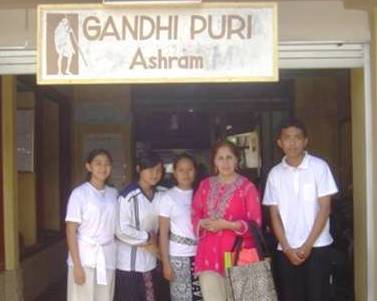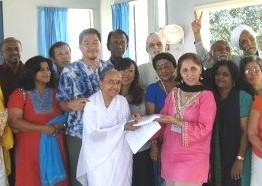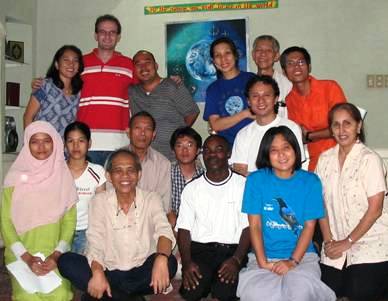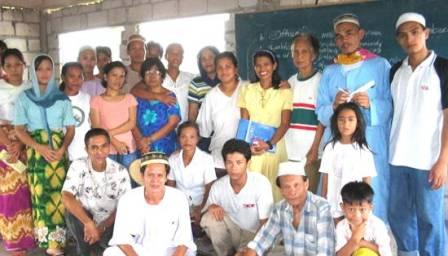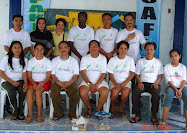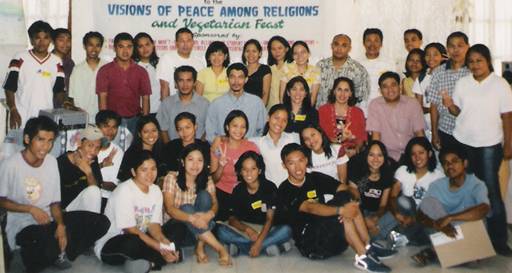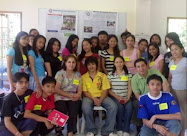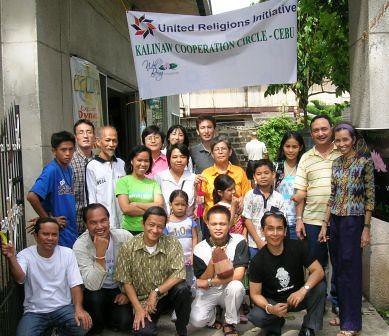 Dr. Abdulhusin "Jo" Kashim, presided over a public forum organized by The Peacemakers' Circle CC last February 27, 2008 as the concluding activity under the URI Moral Imagination (MI) grant that was awarded to our Philippine team in August 2007.
Dr. Abdulhusin "Jo" Kashim, presided over a public forum organized by The Peacemakers' Circle CC last February 27, 2008 as the concluding activity under the URI Moral Imagination (MI) grant that was awarded to our Philippine team in August 2007.The forum, entitled "Finding Place for Moral Imagination in the Peace Process in Southern Philippines," was inspired by the conversations that the members of the MI team had concerning Dr. Jo's experience as a member of the MNLF--Joint Working Group of the GRP-MNLF-OIC (Gov't of the Rep. of the Phils.-Moro National Liberation Front-Organization of the Islamic Conference, a union of Muslim nations to which Muslims in the Philippines looked for support) Tripartite Meeting. The MNLF-GRP-OIC Tripartite Meeting had been postponed about six times over the past year, and the last meeting held early in February this year was strongly contentious, according to Dr. Jo.
Dr. Jo pointed out that the problem in the southern Philippines was aggravated when in September 1972 martial law was declared by then President Ferdinand Marcos and all civilians were ordered to surrender their guns. This resulted in spontaneous rebellions among Moros, who traditionally had equated the right to carry arms with their religious heritage and were suspicious of the government's intentions toward them.
The problem eventually gave rise to the creation of the Moro National Liberation Front (MNLF) that fought for an independent Moro nation. But during the late 70s differing goals, traditional tribal rivalries, and competition among Moro leaders for control of the movement produced a split in the MNLF. In January 1987, the MNLF accepted the government's offer of semi-autonomy.
Last February, Dr. Jo (though not a member of the MNLF) was invited to be in the MNLF Joint Working Group of Nur Misuari, incarcerated President of the MNLF. The experience, according to Dr. Jo, challenged his being a "peacemaker" because of the abusive treatment he received from the prison guards of Misuari. As MI Phil. team co-member, Ms. Marites Africa, listened to his story, she realized that this was something that had to be shared with the public. Thus she urged him to do so but from the perspective of an MI peacebuilder (so that we could offer an "out-of-the-box" way of looking at the problem).
 The lecture was well attended and successful. The MI Phil. team plans to offer similar seminars on the MI approach to social change and/or integrate them into the various workshop-seminars that they will be conducting in the coming months. Further, Ms. Marites I have invited Dr. Jo to present the same lecture (with some suggestions for improvement) in one of the modules of the MUSLIM-CHRISTIAN DIALOGUE FOR NATION-BUILDING training program this April.
The lecture was well attended and successful. The MI Phil. team plans to offer similar seminars on the MI approach to social change and/or integrate them into the various workshop-seminars that they will be conducting in the coming months. Further, Ms. Marites I have invited Dr. Jo to present the same lecture (with some suggestions for improvement) in one of the modules of the MUSLIM-CHRISTIAN DIALOGUE FOR NATION-BUILDING training program this April.(see also: http://moralimaginationmanila.blogspot.com/2008/05/mi-peace-process-in-southern.html)
